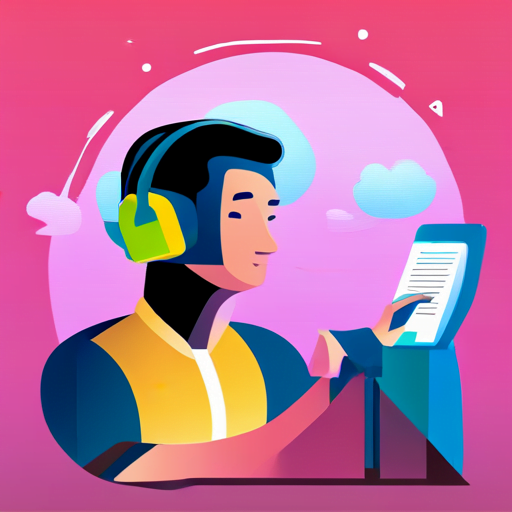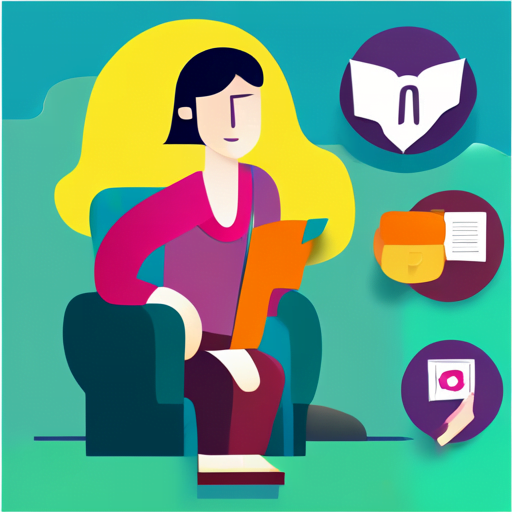Are you struggling with dyslexia and feeling discouraged about your reading abilities? Don’t worry, you’re not alone. Dyslexia is a common learning disability that affects many people’s ability to read and write.
However, it’s important to remember that reading is for everyone, and there are strategies and resources available to help you overcome these challenges.
In this article, we will explore some effective strategies for building phonological awareness, utilizing assistive technology, and seeking support and resources to improve your reading skills.
By implementing these strategies, you can overcome dyslexia and develop a love for reading. So, let’s dive in and discover how you can unlock the power of reading!
Table of Contents
Understanding Dyslexia

You might feel like you’re constantly swimming upstream, struggling to make sense of the jumbled letters on the page, but understanding the complexities of dyslexia can help shed light on the challenges you face.
Dyslexia is a neurological disorder that affects reading skills and can make it difficult to identify and process letters and words. Contrary to popular belief, dyslexia is not a result of laziness or lack of intelligence. It is a condition that affects people of all ages, races, and backgrounds.
Dyslexia can manifest in many different ways, and its severity can vary from person to person. Some individuals may have difficulty with phonological processing, which means they struggle to identify the sounds of letters and words. Others may have difficulty with decoding, which means they struggle to recognize written words. Still, others may have difficulty with comprehension, which means they struggle to understand what they read even if they can identify the words.
There is no cure for dyslexia, but there are many strategies and accommodations that can help individuals with dyslexia overcome their challenges. Some common strategies include using assistive technology, such as text-to-speech software or audiobooks, breaking down words into smaller parts, and using multisensory techniques to reinforce learning.
With the right support and resources, individuals with dyslexia can succeed academically and in other areas of their lives.
Building Phonological Awareness

Boosting your ability to recognize sounds and distinguish between them is key to improving your understanding of written language. This is called phonological awareness. By practicing phonological awareness, you can train your brain to better perceive and manipulate the sounds of language, which can help you read and write with greater ease.
Some ways to build phonological awareness include listening to and repeating rhymes, playing word games, and practicing phonics. Rhyming is a great way to develop phonological awareness. When you listen to and repeat rhymes, you train your brain to recognize similar sounds and patterns in words. This can help you identify and remember words more easily when you read or write.
Word games, such as tongue twisters or memory games, can also be helpful in building phonological awareness. These games challenge your brain to identify and remember sounds and words in a fun and engaging way.
Finally, practicing phonics can be very beneficial in building phonological awareness. Phonics is the study of the sounds of language and how they relate to written letters and words. By learning the rules of phonics, you can better understand how words are spelled and pronounced, which can help you read and write more accurately.
With consistent practice and dedication, you can improve your phonological awareness and overcome dyslexia.
Utilizing Assistive Technology

If you’re struggling with processing written language, utilizing assistive technology can be a game-changer in improving your ability to comprehend and engage with text.
There are a wide range of assistive technology tools available that can help individuals with dyslexia, including text-to-speech software, digital highlighters, and speech recognition software. These tools can help with tasks such as reading, writing, note-taking, and studying.
Text-to-speech software is particularly helpful for individuals with dyslexia, as it can read text aloud in a natural-sounding voice. This can help with reading comprehension, as well as with proofreading written work.
Digital highlighters can also be useful for identifying key information in text, such as main ideas or vocabulary words.
Speech recognition software can be helpful for individuals who struggle with writing, as it allows them to dictate their ideas and have them transcribed into text.
Ultimately, utilizing assistive technology can help individuals with dyslexia to access and engage with written language in a way that is more comfortable and effective for them. It’s important to explore different options and find the tools that work best for your specific needs and learning style.
With the right assistive technology, reading and writing can become more accessible and enjoyable activities.
Seeking Support and Resources

Finding support and resources can greatly enhance your ability to utilize assistive technology and improve your engagement with written language. Dyslexia can be isolating, but there are many organizations and communities dedicated to helping individuals with dyslexia. These resources can provide emotional support, guidance, and access to helpful tools.
One resource to consider is the International Dyslexia Association. This organization provides information on dyslexia, resources for individuals with dyslexia, and professional development opportunities for educators. They also have a directory of professionals who are trained to diagnose and treat dyslexia. Joining a local chapter of the IDA can connect you with others who understand the challenges of dyslexia and can provide valuable support.
Another avenue for support is through assistive technology companies. Many companies offer free trials or demonstrations of their products, allowing you to try before you buy. Companies like Learning Ally and Bookshare offer audiobooks and digital text-to-speech readers that can make reading more accessible. Additionally, there are many apps and software programs designed specifically for individuals with dyslexia.
By seeking out support and resources, you can improve your ability to access written language and overcome the challenges of dyslexia. Don’t be afraid to reach out to organizations and companies for help – there are many people and tools available to support you on your journey.
Frequently Asked Questions
What are some common misconceptions about dyslexia?
You might have heard some misconceptions about dyslexia. One common misconception is that dyslexia means you see letters and words backwards. However, dyslexia actually affects the way the brain processes language, making it difficult to read, write, and spell.
Another misconception is that dyslexia only affects children. In reality, dyslexia is a lifelong condition that can affect people of all ages.
It’s important to understand the reality of dyslexia in order to provide support and accommodations for those who struggle with it.
Can dyslexia be cured or outgrown over time?
You may be wondering if dyslexia can be cured or outgrown over time. Unfortunately, there’s no cure for dyslexia. However, with the right strategies and support, individuals with dyslexia can learn to read and write proficiently.
It’s important to understand that dyslexia is a neurological condition that affects how the brain processes language, so it can’t be simply outgrown. But with hard work and the right interventions, dyslexia doesn’t have to hold you back from achieving your goals.
How does dyslexia affect different areas of life beyond reading and writing?
Dyslexia can affect different areas of your life beyond reading and writing. You may struggle with time management, organization, and following directions.
Math can also be challenging, as can learning a new language. Social interactions may feel overwhelming, and you may have difficulty with verbal communication.
It’s important to remember that dyslexia doesn’t define you, and there are strategies and accommodations that can help you succeed in all areas of your life. Seeking support from family, friends, and professionals can make a significant difference.
Are there any natural remedies or alternative therapies that can help with dyslexia?
Looking for natural remedies or alternative therapies to help with dyslexia? While there’s no cure for dyslexia, there are a variety of methods that may help alleviate some of its symptoms.
These include using colored overlays or lenses to reduce visual stress, practicing mindfulness and meditation to improve focus and reduce anxiety, and incorporating physical exercise to improve overall brain function.
Additionally, certain dietary changes, like increasing consumption of omega-3 fatty acids and reducing sugar intake, may also be beneficial.
It’s important to note that these methods aren’t a substitute for traditional interventions like tutoring and specialized instruction, but may be used in conjunction to support the learning process.
How can parents and teachers best support a child with dyslexia in a classroom setting?
As a parent or teacher, you can best support a child with dyslexia in a classroom setting by being patient, understanding, and providing accommodations.
Dyslexia affects a child’s ability to read, write, and spell, so it’s important to offer alternative ways of learning. This may include providing audio books, allowing extra time on assignments, and breaking down instructions into smaller, more manageable steps.
It’s also important to create a positive and supportive learning environment, where mistakes are seen as opportunities for growth and success is celebrated. By working together and being flexible, you can help your child or student with dyslexia thrive in the classroom.
Conclusion
Congratulations! You’ve just learned about strategies to overcome dyslexia. By understanding dyslexia and building phonological awareness, you can improve your reading skills and become a better reader.
Utilizing assistive technology like audiobooks and text-to-speech software can also help you overcome the challenges of dyslexia. And don’t forget to seek support and resources, whether it’s from a professional tutor or a support group for individuals with dyslexia.
Remember, reading is for everyone and dyslexia doesn’t have to hold you back. With these strategies and the right mindset, you can improve your reading abilities and enjoy the many benefits of reading.
Whether it’s for education, career, or personal growth, reading can open up a world of opportunities. So, keep practicing and don’t give up. You’ve got this!
